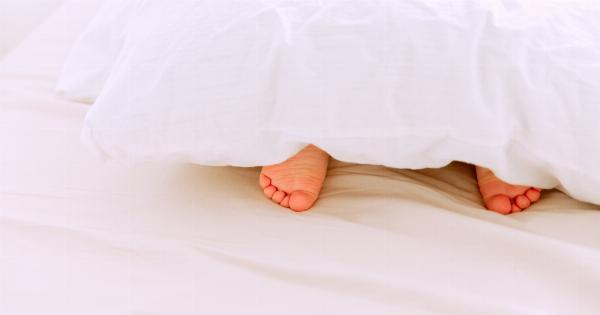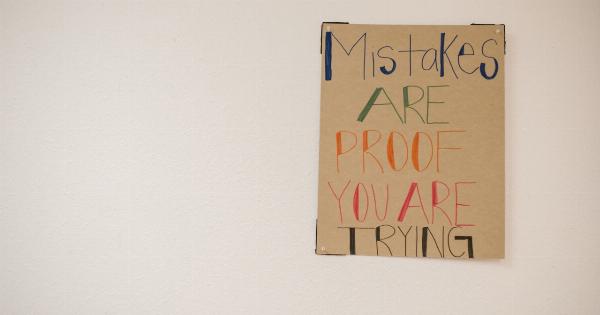Hiccups are a common occurrence that everyone experiences at some point in their lives.
These involuntary contractions of the diaphragm muscle can be caused by a variety of factors, such as eating too quickly, drinking carbonated beverages, or experiencing excitement or stress. Usually, hiccups are harmless and short-lived, lasting only a few minutes. However, what if you find yourself experiencing excessive hiccups that seem to persist for an extended period? Could it be a sign of something more serious?.
Understanding Hiccups
Before we delve into the potential causes and implications of excessive hiccups, let’s take a moment to understand what hiccups are and how they occur.
Hiccups are sudden, involuntary contractions of the diaphragm muscle, followed by the closure of the vocal cords. This closure results in the characteristic “hic” sound produced by air rushing into the lungs. Hiccups can occur singly or in bouts and can vary in frequency and strength.
The Causes of Excessive Hiccups
While most hiccups are harmless and resolve on their own, persistent or excessive hiccups may have underlying causes that warrant further investigation. Here are some potential reasons for prolonged hiccups:.
Gastrointestinal Disorders
Gastroesophageal reflux disease (GERD), a condition in which stomach acid flows back into the esophagus, can irritate the diaphragm and lead to chronic hiccups.
Similarly, other gastrointestinal disorders like gastritis or peptic ulcers can also trigger hiccups.
Respiratory Conditions
Respiratory conditions such as pneumonia, bronchitis, or asthma can cause hiccups. These conditions can directly irritate the diaphragm or stimulate the phrenic nerves, which control the diaphragm’s movement.
Central Nervous System Disorders
Several central nervous system disorders have been associated with chronic hiccups. These include strokes, multiple sclerosis, brain tumors, and meningitis. These conditions disturb the normal functioning of the nerves involved in hiccup regulation.
Medications
Certain medications can disrupt the normal coordination between the diaphragm and the nerves controlling it, resulting in persistent hiccups.
Medications like steroids, tranquilizers, sedatives, and some chemotherapy drugs are known to have hiccups as a side effect.
Metabolic Disorders
Excessive hiccups can also be a symptom of metabolic disorders such as diabetes, kidney failure, or electrolyte imbalances. These conditions affect nerve function and can lead to abnormal hiccup activity.
Psychological Factors
Psychological factors, including stress, anxiety, excitement, or panic, can trigger persistent hiccups. These hiccups are often short-lived and resolve once the emotional trigger subsides.
When to Seek Medical Attention
While most cases of hiccups resolve spontaneously within a short period, persistent or excessive hiccups may be a cause for concern.
If you experience hiccups that last for more than 48 hours, interfere with your ability to eat or sleep, or are accompanied by other alarming symptoms such as difficulty swallowing, shortness of breath, or severe abdominal pain, it is important to consult a medical professional.
A healthcare provider will perform a thorough evaluation and may order tests such as imaging scans, blood tests, or endoscopies to identify any underlying medical conditions. Treating the underlying cause is crucial to alleviate persistent hiccups.
Home Remedies for Hiccups
In many cases, hiccups can be resolved using simple home remedies. Some effective self-care techniques include:.
1. Breath Control
Take a deep breath in and hold it for a few seconds. Exhale slowly and repeat this process several times. Breath control techniques help relax the diaphragm and restore its normal rhythm.
2. Drinking Water
Sipping cold water or gargling with ice water can stimulate the vagus nerve, which may help interrupt the hiccup reflex arc.
3. Swallowing Granulated Sugar
Swallowing a teaspoon of granulated sugar can stimulate the vagus nerve and potentially disrupt the hiccup reflex.
4. Drinking From the Opposite Side of a Glass
Bend at the waist and drink from the opposite side of the glass while leaning forward. This technique may help stimulate the muscles involved in swallowing and interrupt the hiccup reflex arc.
5. Holding Your Breath
Breathe in deeply, hold your breath for as long as possible, and then slowly exhale. Repeating this process can help reset the breathing pattern and potentially alleviate hiccups.
Conclusion
Hiccups are typically harmless and resolve on their own, but excessive and persistent hiccups may indicate an underlying medical condition.
If you experience hiccups that last for more than 48 hours or are associated with concerning symptoms, it is important to seek medical attention. A healthcare provider can assess your condition, identify any potential underlying causes, and provide appropriate treatment. Remember, understanding the potential causes and seeking timely medical advice can help ensure your well-being.





























